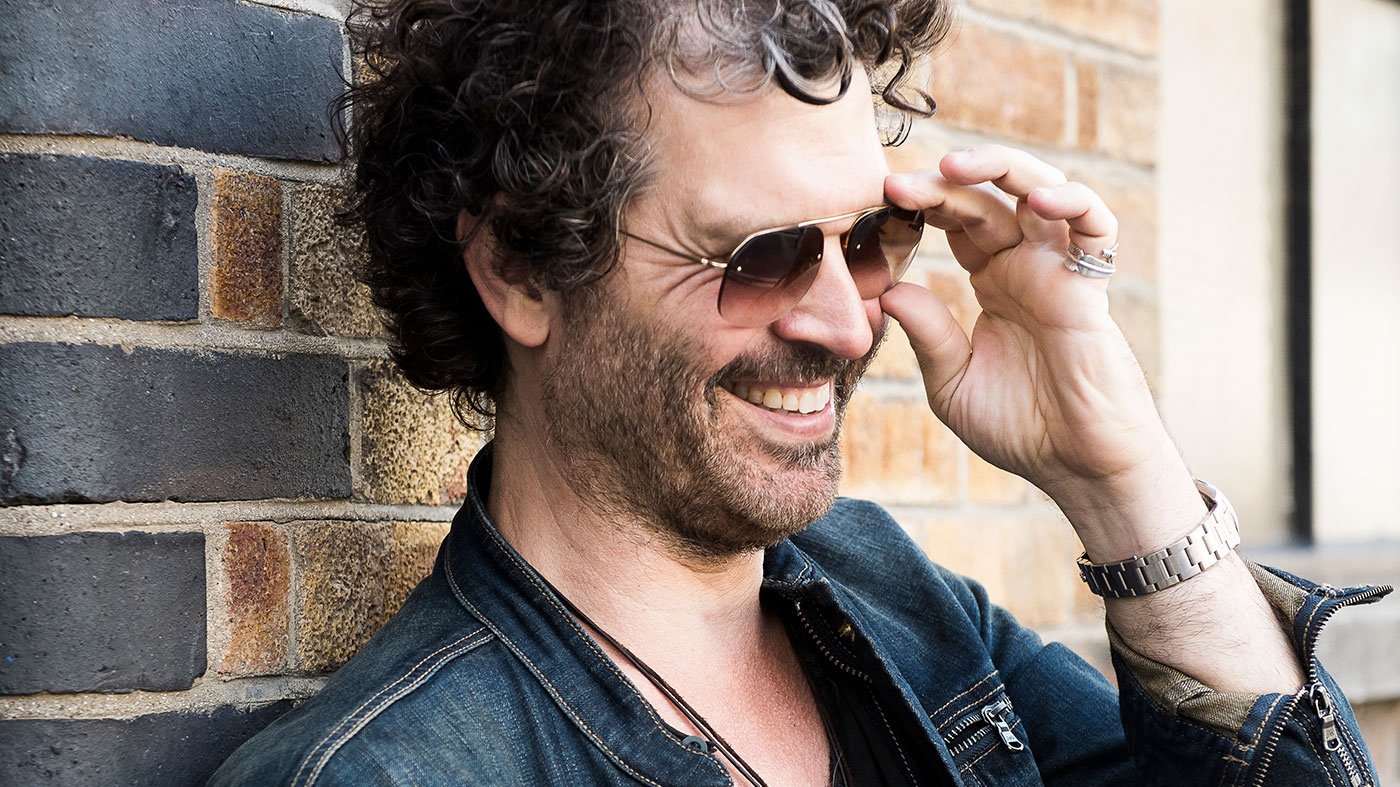Doyle Bramhall II: “I’ve spent my life studying music and I know what I love. I just follow what comes out of me”
The producer and sideman to rock royalty returns with a new solo studio record
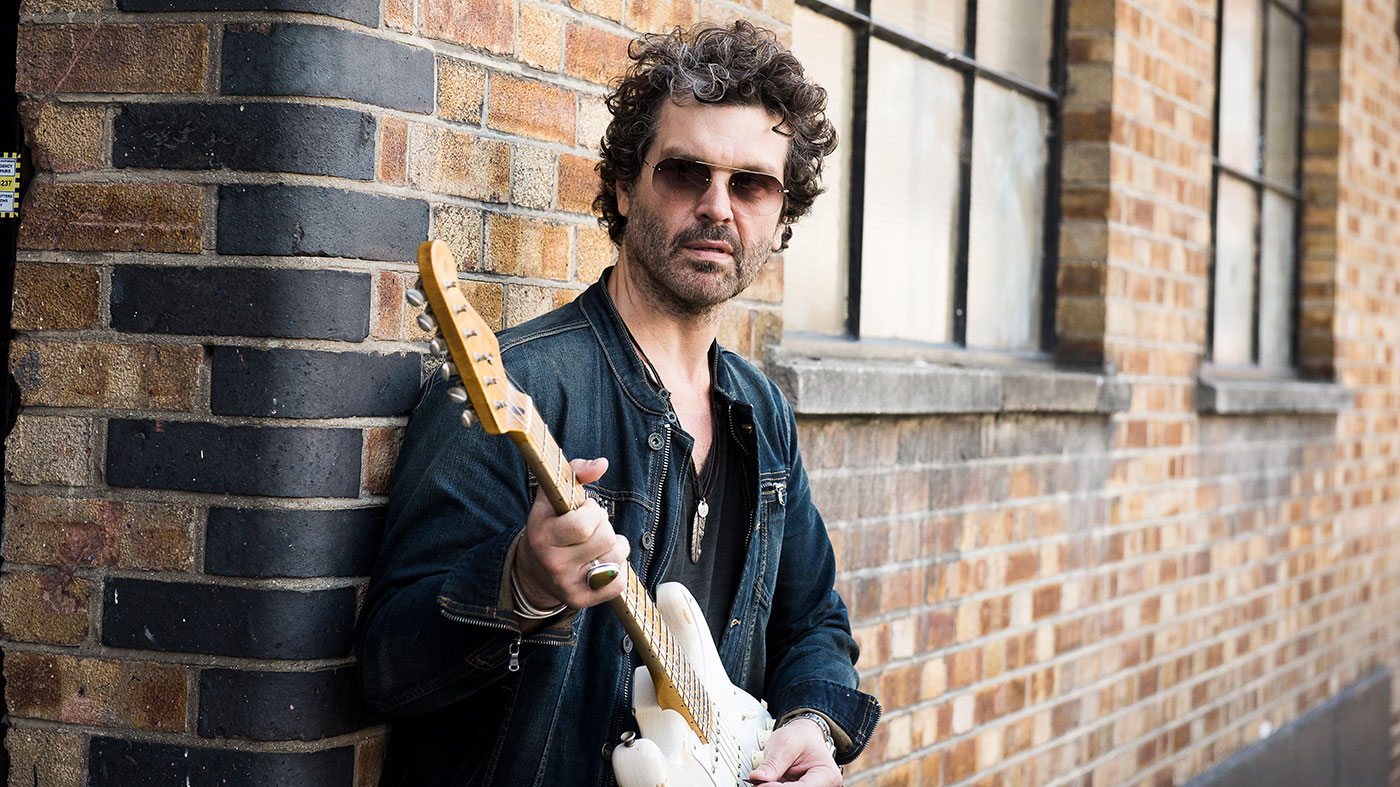
Want all the hottest music and gear news, reviews, deals, features and more, direct to your inbox? Sign up here.
You are now subscribed
Your newsletter sign-up was successful
The world received its first flash of this guy’s brilliance more than 20 years ago. A pair of solo albums released just before the millennium (Doyle Bramhall II and Jellycream) confirmed he was steeped in something deeper than most. That his father had played and co-written with Texas legends including the Vaughan brothers was part of it, as was Doyle Jr’s friendship with Jimmie and Stevie.
As it happened, it wasn’t just music fans who noticed his talents. Throughout the 2000s he toured with, wrote with and produced for a glittering list of musicians, (including Roger Waters and Eric Clapton) who kept him busy enough to divert the solo records until 2016. But then, to everybody’s surprise, he released Rich Man, a highly skilled display of sonic and compositional vision that won him a whole new fanbase.
All my favourite artists growing up would put out a record - or two! - per year... I like the idea of creating a body of work
Less than two years later, it seems he has a taste for the solo career, which now includes his latest album, Shades. Full of Bramhall’s customary fuzzy, reverb-drenched blues-based guitar, this new instalment has turned out to be an exciting career progression. So why this, and why now?
“I’ve really been trying to cultivate my career in a different way to how it was before,” smiles a relaxed Bramhall during a recent trip to London. “I was spending a lot of time producing and working for other people, which served that time. I really loved collaborating with other people, but maybe about five or six years ago I started to come into this new relationship with performing and playing live and connecting with an audience in a different way.
“All my favourite artists growing up would put out a record - or two! - per year. Stevie Wonder, Hendrix, Sly Stone, The Beatles… So I like the idea of creating a body of work. I just feel like I’m in a good place when I’m flowing and I just want to keep creating.”
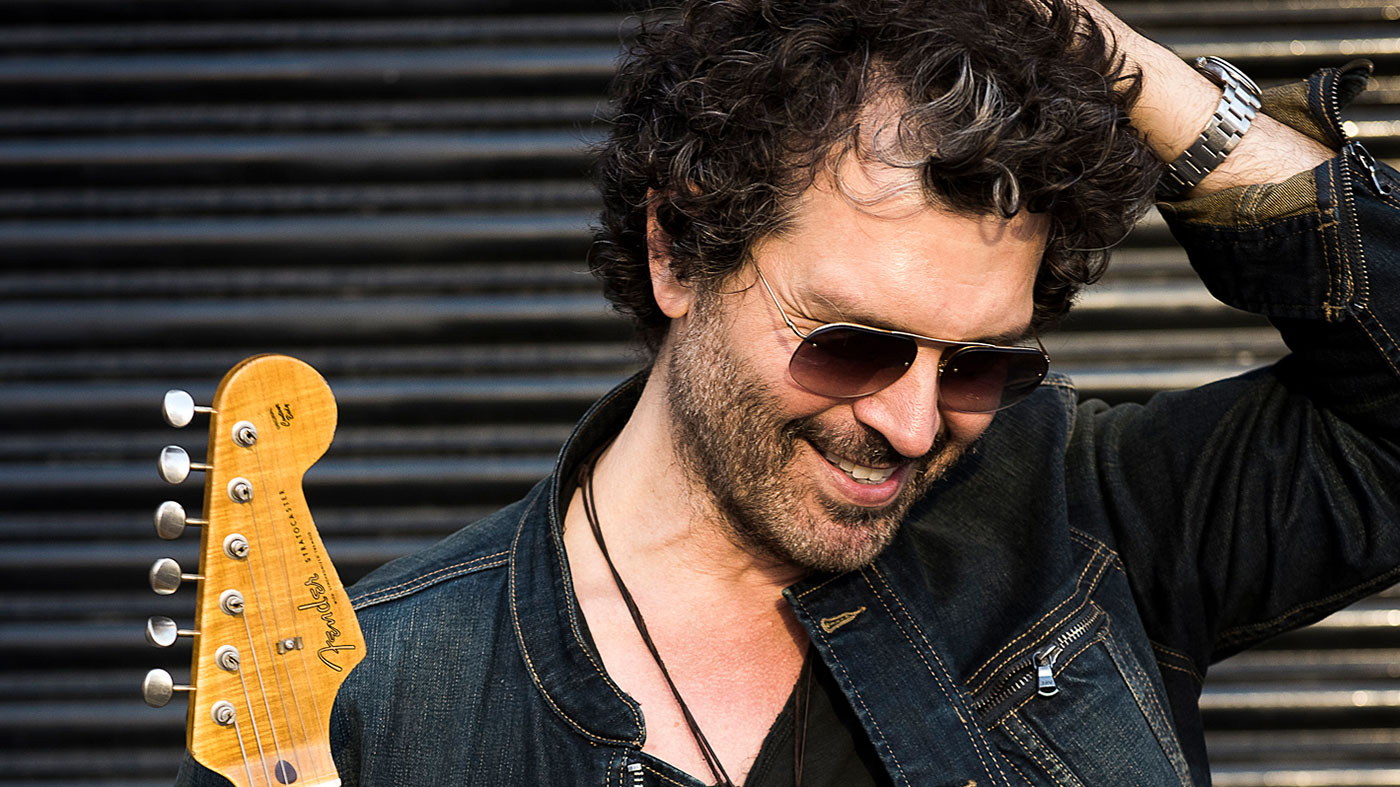
Solo vs sideman
Producer, sideman, solo artist - does it require a different headspace to be in those different modes?
“Producer can be pretty time-consuming because I’m having to think about so many things all at once. It can be overwhelming, always problem-solving. Being a solo artist is actually pretty easy because once you’re on the road, you get your schedule and you just go from thing to thing - you’re in the moment.
Want all the hottest music and gear news, reviews, deals, features and more, direct to your inbox? Sign up here.
It’s taken me a long time to be comfortable in my own skin because when I was younger I would always second-guess everything I did
“Being a sideman is even easier than all of that because it’s all set up - you just show up and do your thing. In that situation, everything doesn’t reflect on my personality. If I’m not, y’know, creating the most genius thing, it’s not all on me. I’ll always give as much as I would my own thing, but it definitely takes the pressure off when you’re just the support for someone else. I like all roles, I like all those situations, and I guess it gives me a more empathic sensibility when I think about my own situation and band.”
It feels like there’s little compromise between your vision and what ends up on record - it doesn’t feel like you’re trying to fit a niche or radio-friendly market. What gives you the courage to do that?
“I think maybe part of it is age. The more experience you have and the older you get, the more comfortable you are with certain things. It’s taken me a long time to be comfortable in my own skin because when I was younger I would always second-guess everything I did. I still have moments… I’ve even heard Eric [Clapton] say it, where he’ll have moments of self doubt, but he also has such a strong sense of self. I feel like that I’ve spent my life studying music and I know what I love. I just follow what comes out of me and it’s undeniable - whatever songs I write, I don’t know what genre they fit in, but it doesn’t really matter because if it’s coming out of me then that is the running thread, that’s the continuity.”
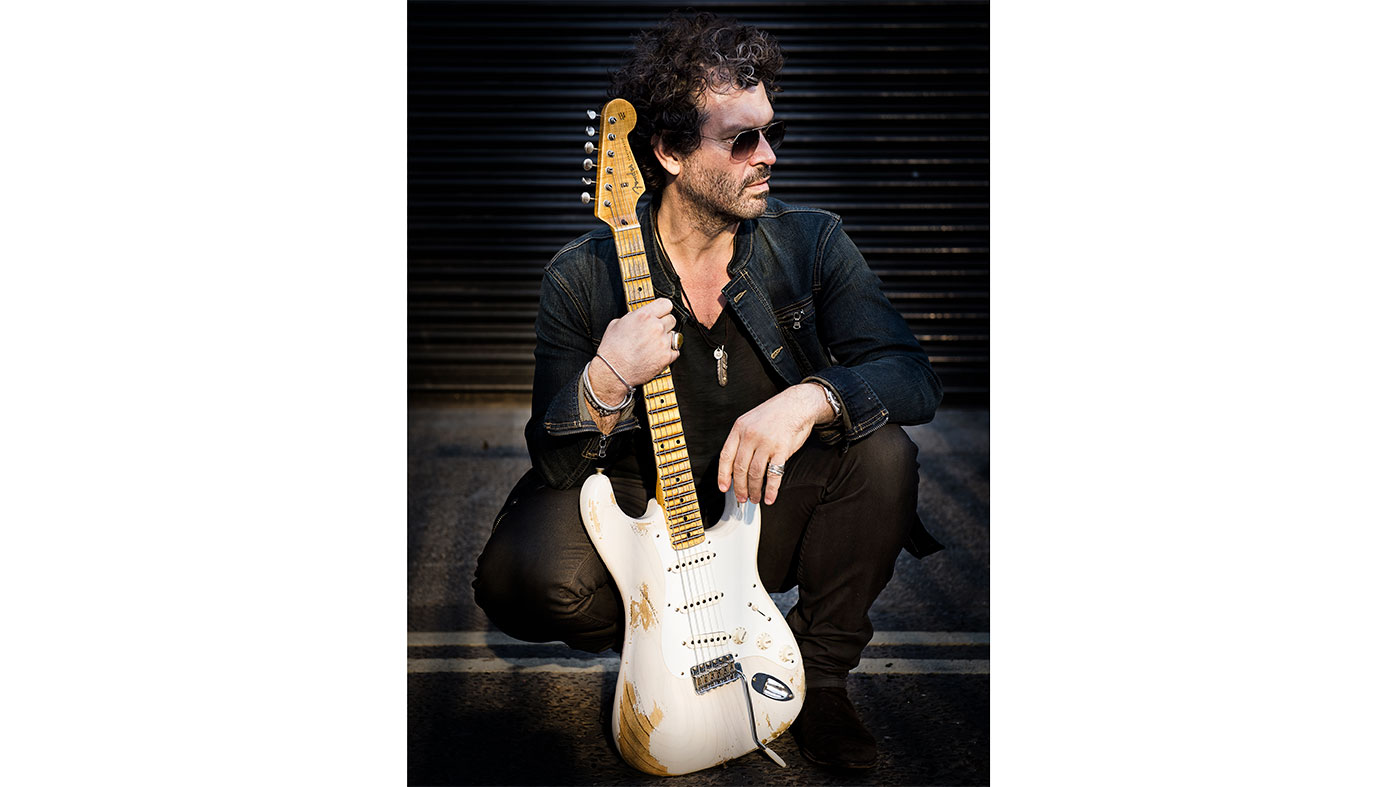
Riding with the King
You mention Eric Clapton - can you remember what you felt like when you got the first call from him? [It was to work on the Riding With The King album, 2000.]
“Yeah, it was just a constant state of excitement. It was almost like a dream state. I guess there were two guitar players that I wanted to emulate. The first two solos that I ever learned, one of them was Eric and Outside Woman Blues; that, and a BB King track.
I’d spent my childhood and formative years with their music, and I knew it
“I emulated Eric and BB when I was a kid, so when I got the call to have Eric and also BB doing covers of songs that I’d written, and then being asked to join them on a record with the songs… it was just a dream come true. When I showed up that day in the studio and they were learning the song, I remember Eric saying, ‘Hey Doyle, come out - it’s me and BB and the band, just come out and show us how to play the song.’ ‘Er, okay.’”
What does a young man do with that - do you play what you think they want to hear, or just do your own thing?
“I was so comfortable in that position, it was almost like it was meant to be. I’d spent my childhood and formative years with their music, and I knew it; I knew all of it because I had lived in that world. Everything they spoke was my language, musically speaking. I don’t think there are lot of people - especially now in the music culture we have - who still speak that language. It was uncanny because with Eric there were so many connections. When he first called me and we got together for the day, when we were talking it turned out we had all these connections.
“For instance, he didn’t know that I grew up with Stevie and Jimmie Vaughan and also Marc Benno who was a songwriter who worked with Leon Russell. He knew all those guys. And then we bonded over both being sober, both going through similar things. Also our love for really obscure blues - I was surprised because he knew about all these things that you would only really know about if you were into deep Texas and Louisiana blues, really unknown. We bonded over that - different takes on the same vocabulary.”
Eric is on the new record: Everything You Need. Who plays the first solo? It sounds either like you channelling him, or him channeling you - it could be either…
“Ha! It’s him [laughs]. I’d written that song and recorded it - tracked it with the band in Brooklyn. I put a vocal melody down and I felt like Eric would like that particular track. He happened to be in the States, so I went to him to record it.
“When I originally brought it to him, I don’t think I’d played a lead on it yet. So I said, ‘You take those first two rounds and play at the end.’ He did four or five passes and I said, ‘Great, I think I have what I need.’ I told him I was going to go back and put a guitar solo on it, too. And he said, ‘Oh, hang on - I didn’t realise you were going to play on it as well. Okay, let me do it again. I’m going to step it up a bit.’ So then he played with even more fire [laughs].”
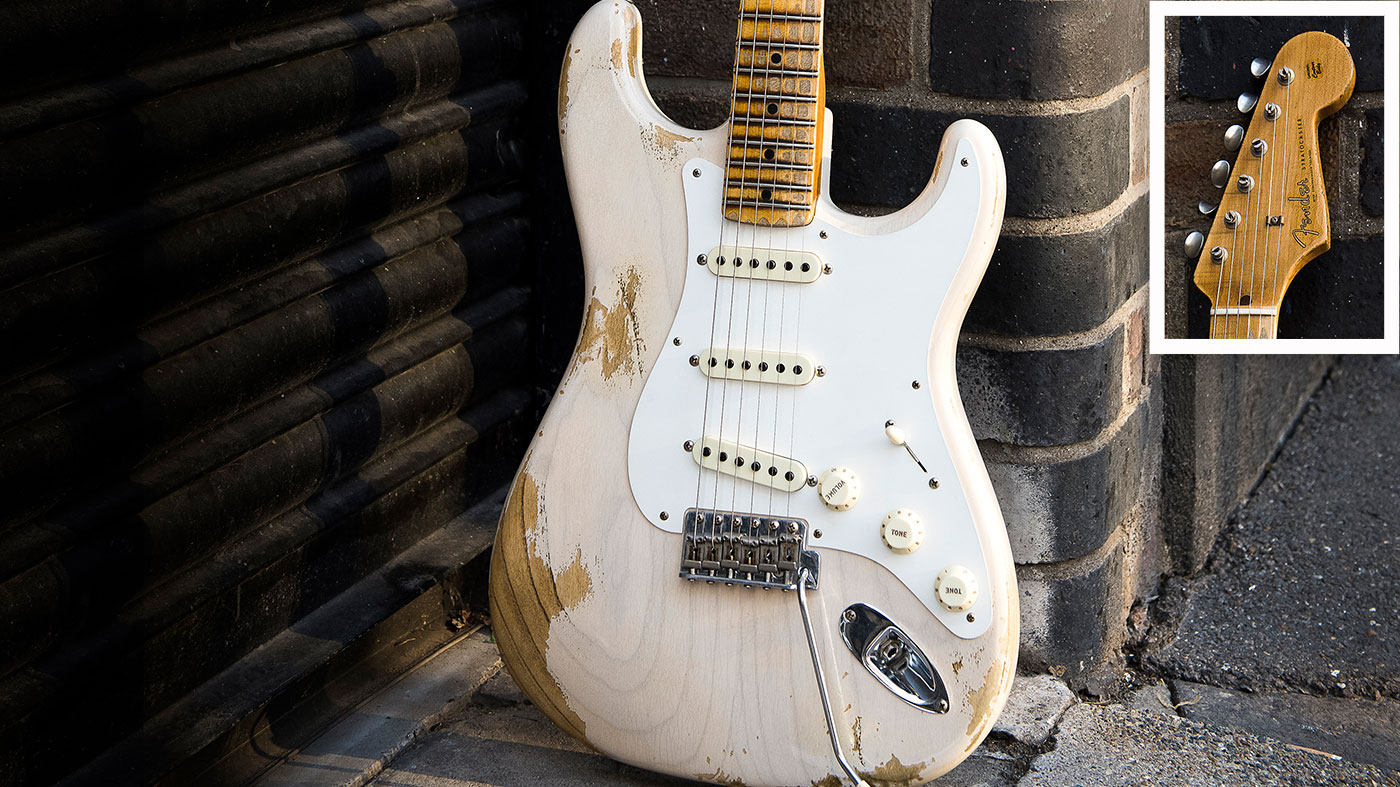
Strat's life
The tone is great, too - is that a Strat he was playing?
“Yep, Eric is playing a Strat. I come in with a 335 for the second solo.”
Does the Strat and 335 thing come straight from Eric and BB for you?
“Strats were the Texas guitar, y’know. That’s what it was, right from Buddy Holly. I’d gotten used to playing Strats because they’re so easy and functional. With the Gibsons, you have the four knobs, and if one gets turned off you’re trying to figure out which one it is! So the Strat became the live guitar, but less so for recording. I might use it for solos, but for most tones, SGs, 335s…”
Were there staple guitars on Shades?
There were right-handed guitars around the house. So I just picked it up, and it didn’t even occur to me to swap the strings over
“Yes, my ’64 Strat, the Heritage 535. I used a Collings I-35 and also a Guild Aristocrat - that’s a great recording guitar - and a late-60s Epiphone Casino.”
The track Consciousness and that Leslie sound is very Beatles, notably the ending!
“The vocals are through a Leslie, too, and the guitar was through a proper Leslie at [Electro-] Vox Studios in LA. The working title for that song was ‘Ram Song’ because one of my favourite records is Ram by Paul McCartney - still one of my favourite productions of all time. I played everything on that. And the end part… I thought I’d save that for the end so I didn’t lose everybody at the beginning! [laughs]”
Have you always played drums, because of your dad, I guess?
“Yeah, and my stepbrother played drums, too. I think I was forced into playing another instrument because we didn’t have anybody doing it. So I started out on bass guitar because I figured it was easier, then I switched to guitar from there. I think I was the only kid in my entire school who liked blues music and played guitar. Everybody else liked Duran Duran and Oingo Boingo, ha!”
And the lefty-strung-righty thing - was that simply down to what was available to you at the time?
“Yeah, there were right-handed guitars around the house. So I just picked it up, and it didn’t even occur to me to swap the strings over - I didn’t even know what that was. And the thing was, I could play pretty much from the beginning. I picked it up and I could play. I was 14 when I picked up the guitar, and the bass was a couple years before that?”
What does it bring, playing that way up? Does it give you something unique?
“I think it does, but I don’t know if I can explain it or verbalise it. I know that pulling down to bend instead of pushing up makes a difference - it’s much easier. Maybe that’s why when you think about Albert King or Otis Rush - big bends, all the time.”
Setting the tone
There’s a fantastic guitar sound at the top of Live Forever (featuring Greyhounds) from the new record - what is that?
“That’s my [British Pedal Company] Zonk Machine through - believe it or not - a 1980s 1x12 Peavey! I hadn’t used a Peavey since I was 15… So I plugged in, getting all this feedback and killer tones. Who would have thought? It was a trip!”
You’re obviously a fan of classic fuzz… How did that begin?
My pedalboard basically has five different fuzz boxes. The [British Pedal Company] Zonk Machine is my go-to fuzz
“The biggest influence for me, especially for records, was Jimi and Eric, so Fuzz Face all the way. Fuzz tones are so pleasing to me - not at all harsh, just thick and warm and, well, pleasing. Now, my pedalboard basically has five different fuzz boxes. The [British Pedal Company] Zonk Machine is my go-to fuzz. And then I just got these exact replicas of the original Dallas Arbiter Fuzz Face - a ’67, ’68 and a ’69. I’m working my way back up to big pedals again.
“I also have the [Acid Fuzz] Zoink, and the Experience by Prescription Electronics. I’ve used the Prescription Electronics COB for many years, and if you hear me playing octave sounds, then it was probably that.
“My Vibe-Bro is probably the best knock-off of the Uni-Vibe with all the right parts. Although on Parvanah on the new record, that was an original 60s Uni-Vibe.
“I’m also using an overdrive that I really love - the Duellist by Jesse Davey, the right side, which is the String Singer.”
What do you look for in a guitar amp?
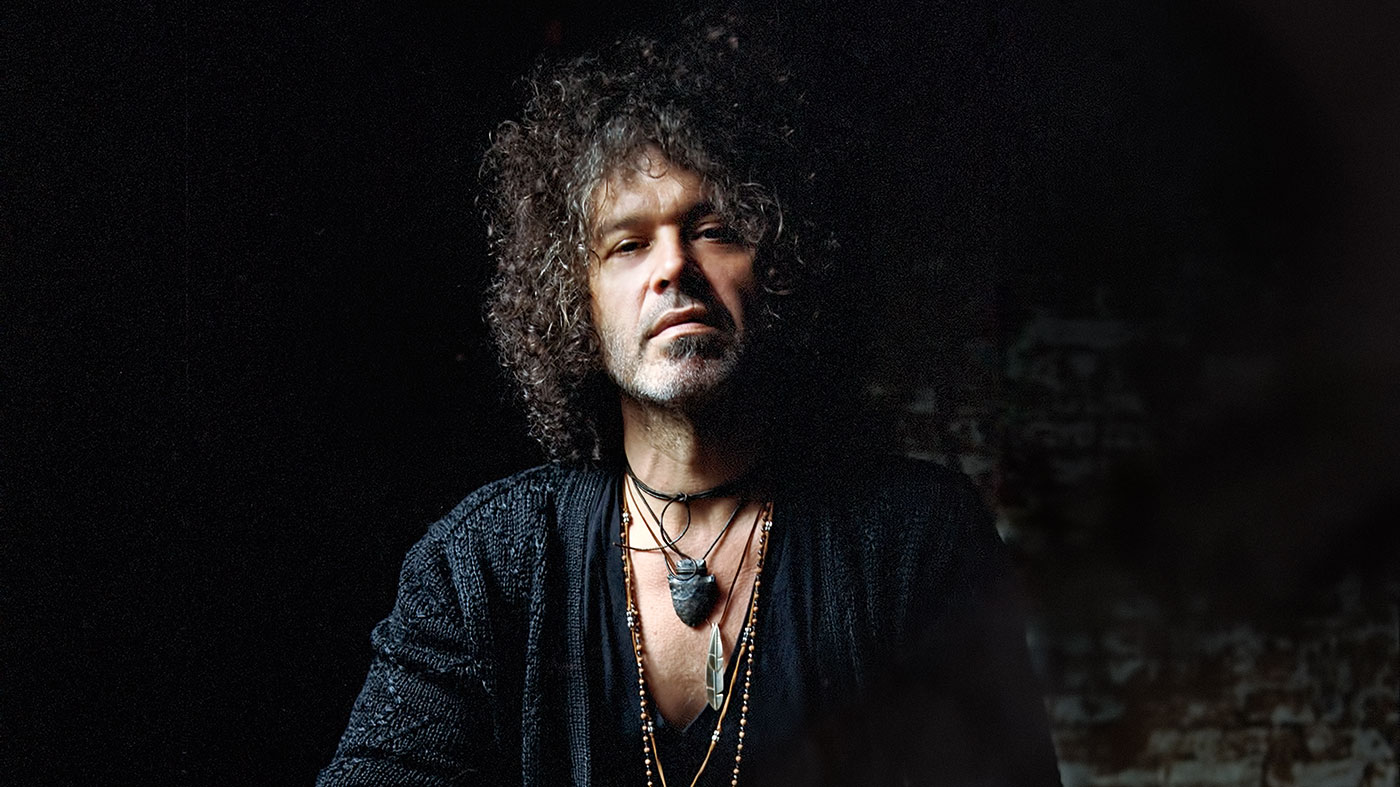
“I’ve really just been playing the Two-Rock amps for the last year or so. I was opening some shows for Eric [Clapton], and Scott McKeon the UK guitar player loaned me his, and I really loved it. I hooked up with Two-Rock after that.
“For recording, I try different things in the studio for different characters and personalities. I used the Two-Rock [Classic Reverb Signature], a [Fender] Super Reverb, a Fender Vibratone, an old 100-watt Selmer - which is on Everything You Need - and I also played a Supro. It wasn’t a Thunderbolt, but maybe the one down from there. That was a killer amp, too! And a 1969 Fender Pro, which I’ve used on a lot of things.”
So, will you be out touring the new record around the UK?
“Never. Hahahaha! Yes, of course - I don’t have anything set up just now, but there will be. I’d be content to just play Europe. It’s a great place for me!”
Doyle Bramhall II’s latest album, Shades, is available now on Provogue.
